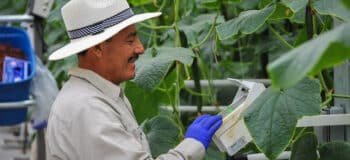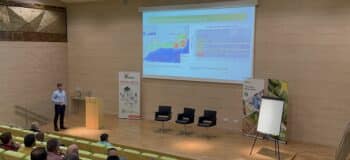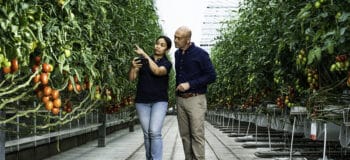21 July 2021
‘The Indian government needs to steer growers in the right direction’

India has long been the promised land for food production, but there are still big steps to be taken in the field of food safety and food security. This is all happening far too slowly, according to Arjen Janmaat of Ridder. “The Indian government should push growers more and make subsidies available to steer them in the right direction. The Dutch Greenhouse Delta (DGD) can seek contact with the Indian government in order to raise greenhouse horticulture to a higher level.”
Fresh and safe food
The supply chain is another issue in the area of food safety and security. According to Arjen, food waste is high in India because of poor logistics and a limited shelf life of products. Food without too many chemical residues is also a concern, he knows. “The shelf life of fresh products in supermarkets is short. The products on the shelves are replaced in the middle of the day by new products, because the quality deteriorates so quickly. That has to do with refrigeration and logistics.”
According to the sales manager, the demand from the growing Indian middle class for fresh and safely produced food is increasing. “This group is willing to pay a premium price for it. The question, however, is how does a producer of safe food differentiate their products in the supermarket from the rest? That requires a bit of branding. That is another area where Indian horticulture faces challenges.”
The government has now started giving subsidies for the cold chain, transport and refrigeration to improve the shelf life of food. The corona crisis has also increased awareness of the need to produce locally. Arjen: “In India, this means producing in the region, because the country is so big. The government also wants to limit the transport of fresh products.”
Enormous potential for DGD
According to Arjen, DGD can bring added value to India by bringing together business, government and science. “There is enormous potential for DGD’s partners in India. After all, there is a need to upgrade existing horticulture, to achieve higher production, use less water and fertilisers, and to provide better quality food,” he summarises. Participation in the PIB (Partners for International Business) partnership in India, initiated by DGD, is very important to Ridder. It helps us to grow as a company in this country and to capitalise on the opportunities that are available. “Ridder is a supplier for greenhouse builders and installation companies. By taking on projects with other partners within the DGD platform, we can use our innovations to jointly lift the Indian market to a higher level.”
“There is enormous potential for DGD’s partners in India. After all, there is a need to upgrade existing horticulture, to achieve higher production, use less water and fertilisers, and to provide better quality food,” Arjen Janmaat International Sales Manager Ridder
Source: Dutch Greenhouse Delta






